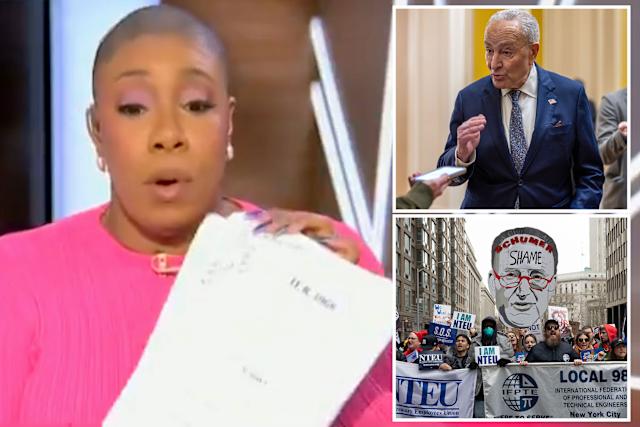MSNBC Host Symone Sanders-Townsend Issues Stark Warning on Immigration and Vulnerable Communities
In a recent segment, MSNBC host Symone Sanders-Townsend shed light on the urgent threats facing marginalized groups in the United States, particularly focusing on people of color. Addressing recent actions taken by the previous administration, she raised alarms about a potential escalation in the persecution of vulnerable communities, stating unequivocally, “That day is fast approaching.” Her commentary reflects a deep concern for the future of these communities amid the ongoing shifts in immigration policy.
The Context of the Warning
Sanders-Townsend’s remarks come in the wake of significant deportations that have sparked outrage and fear within immigrant communities. The deportation of individuals like Kilmar Abrego Garcia has been portrayed as part of a broader strategy that prioritizes stringent immigration enforcement. Such actions not only impact those directly affected but also resonate throughout communities, instilling a sense of insecurity among families and individuals who fear being targeted next.
This warning highlights a crucial issue at the intersection of immigration policy and social justice. Vulnerable populations, including undocumented immigrants, often experience the brunt of harsh enforcement measures, leaving them in precarious situations. The implications of these policies can be severe, often resulting in separation from families, loss of livelihood, and in some cases, deportation back to potentially dangerous situations.
Consequences for Communities of Color
As Sanders-Townsend articulated during her broadcast, the distressing reality is that the immigration policies in question disproportionately affect people of color. These communities are often subjected to additional scrutiny and can find themselves sidelined in discussions regarding their rights and safety. This marginalization can lead to an erosion of trust between these communities and law enforcement, complicating matters further.
Moreover, the rhetoric surrounding immigration can contribute to stigmatization and discrimination, leading to a hostile environment for individuals from these backgrounds. In a society where systemic racism and xenophobia persist, individuals are at risk of being scapegoated as the narrative shifts toward promoting strict immigration enforcement. Sanders-Townsend’s concerns point to a pressing need to address these broader implications as they threaten the fundamental rights and dignities of entire communities.
The Broader Impact on Policy and Advocacy
Sanders-Townsend’s insights serve as a call to action for advocates and policymakers alike. The warning she issued reflects a significant moment in the ongoing dialogue about immigration reform and human rights protections. It necessitates renewed efforts to ensure that the needs of vulnerable populations are prioritized in legislative discussions moving forward.
Advocates for immigrant rights emphasize the importance of creating inclusive policies that protect marginalized communities. This includes legislation that prevents unjust deportations and ensures access to legal resources for those navigating the immigration system. They stress that advocacy must go beyond mere policy changes; it must also encompass a shift in societal attitudes towards immigrants, particularly those from communities of color.
As the nation grapples with the consequences of its immigration policies, leaders like Sanders-Townsend are instrumental in prompting conversations about equity, justice, and protection for all individuals, regardless of their background. The implications of her warning extend beyond immediate impacts, highlighting the potential for entrenched inequalities to persist if actions are not taken to safeguard vulnerable communities.
Building Solidarity and Support
As communities brace for potential challenges ahead, solidarity becomes imperative. Organizing and supporting local initiatives geared towards providing resources for affected individuals can help build resilience. Community-led efforts that focus on legal aid, mental health resources, and educational workshops can empower individuals to navigate their circumstances more effectively.
Moreover, public awareness campaigns can play a crucial role in shifting perceptions about immigration and its impact on society. By fostering inclusive narratives that highlight the contributions of immigrants and the common humanity we share, advocates can combat discrimination and work towards a more just society.
Ultimately, the stark warning issued by MSNBC’s Symone Sanders-Townsend should resonate within communities and among policymakers. It is a reminder that the fight for justice is ongoing and that our collective responsibility is to ensure that no one is left behind. Vulnerable communities deserve protection, dignity, and the right to thrive—principles that must guide our immigration policies moving forward.
Conclusion: Taking Action for Change
The message from Symone Sanders-Townsend serves as a powerful prompt for reflection and action. It is imperative for individuals and communities to engage in advocacy efforts that support the vulnerable. Join local organizations, participate in community dialogues, and reach out to lawmakers to express concern about policies that may unjustly affect people of color and other marginalized communities. By standing together, we can build a future where everyone feels safe and valued in their own country.





